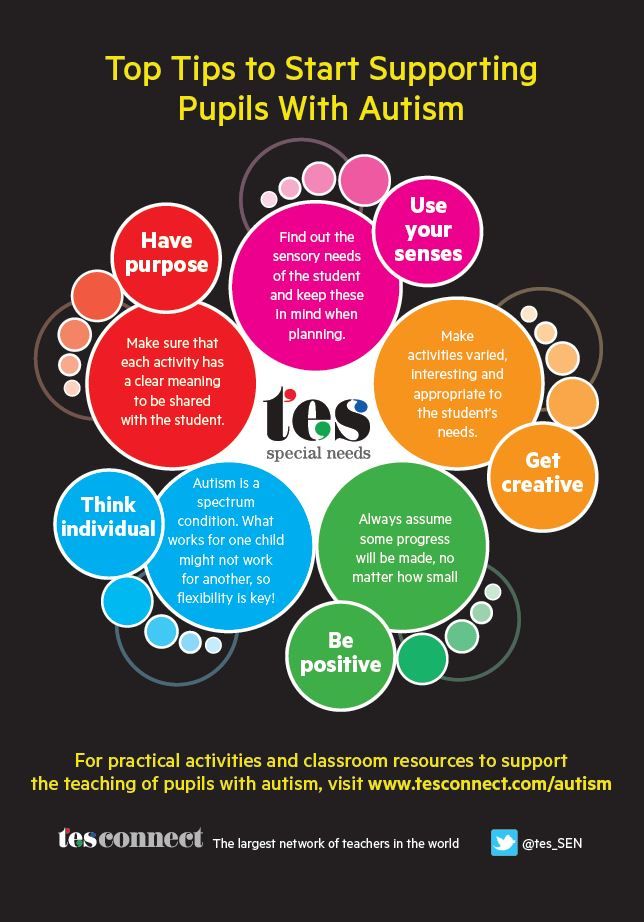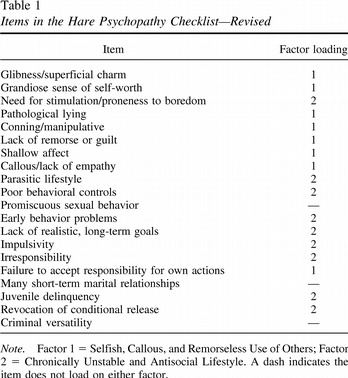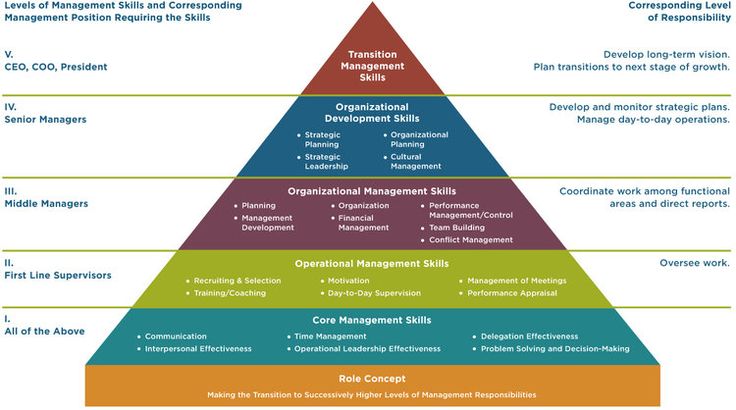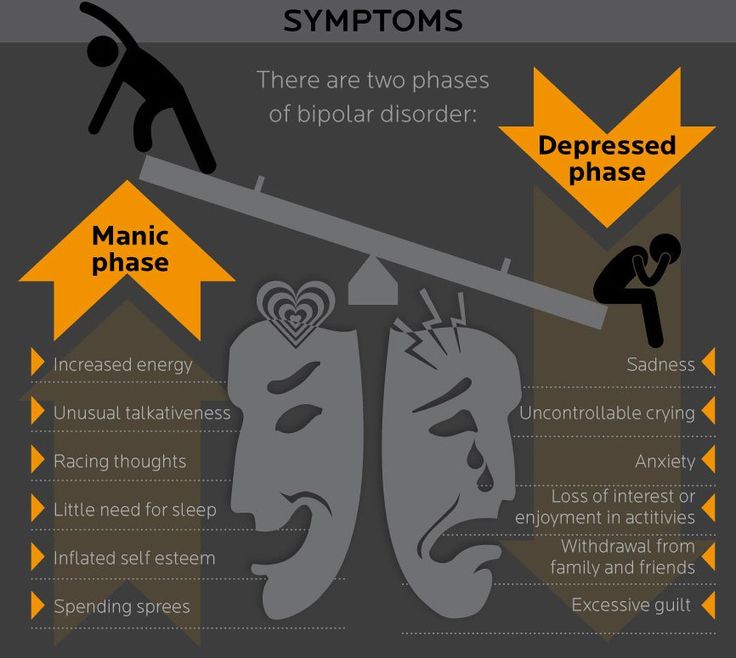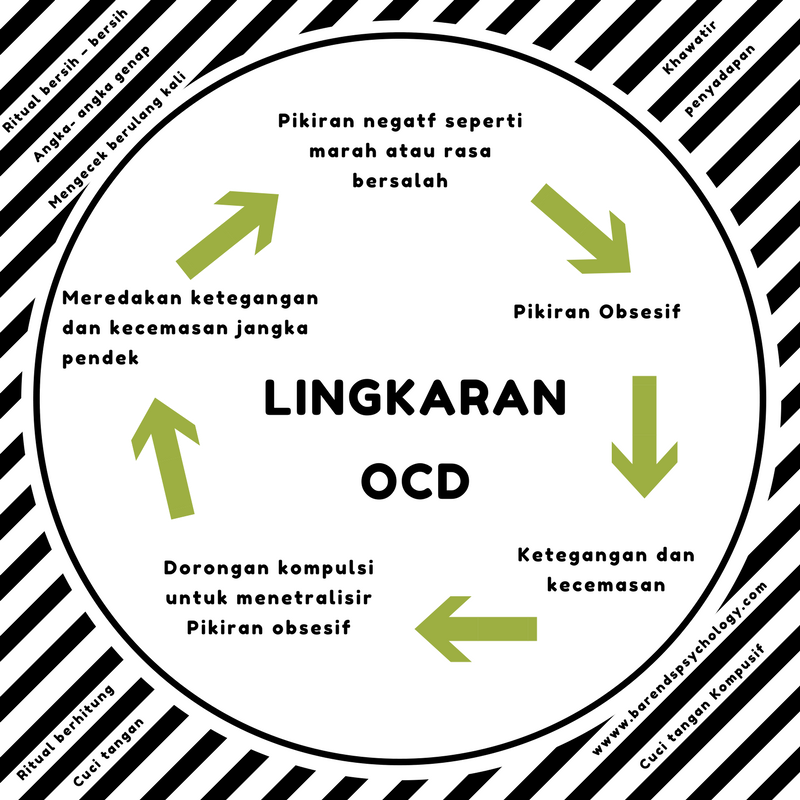Getting a job with autism
Tips for autistic job seekers to find the right job
From the Office of Autism Speaks HR Department
By Jacqlyn Brancati Nedvin, Vice President, People and Culture | October 7, 2022
A fundamental part of Autism Speaks mission is to increase understanding and acceptance of people with autism, including in the workplace. One way we are doing that is through our Workplace Inclusion NowTM program which helps bring autistic job seekers and employers together to create a more inclusive workforce.
But we also practice what we preach. We are proud to count several autistic individuals as colleagues, including the hosts of our Adulting on the Spectrum podcast, Autism Response Team associate, Tony Hernandez, and Board of Directors member, Dr. Stephen Shore.
With 66 years of combined experience on our human resources team, we have seen a lot of resumes and interviewed a lot of candidates – both autistic and non-autistic. Now we want to share our knowledge with you. Below are our insider tips to help set autistic job seekers on a path to finding the right job, whether with Autism Speaks, or anywhere else.
- Register on TheSpectrumCareers, championed by Autism Speaks. This is a free website designed by and for autistic job seekers to connect with businesses that are looking to hire individuals on the spectrum. There are currently over 400 jobs posted from around the country. After you answer a few questions about yourself, you can begin searching for jobs right away.
- Create a list of your strengths. Write down your skills, what you do best and what you enjoy doing. This will help you narrow down your job search to options that fit your interests.
- Write a list describing what you see yourself doing in the future. Feel free to list your dream job, but also write down other jobs that you would be interested in learning more about. Make note of which ones match up with your strengths.

- Write down the names of businesses that are accessible to you via public transportation, walking distance, or a ride share.
- Speak with a Vocational Rehabilitation (VR) counselor in your local area about the supports they can provide you. VR services are designed to help those with disabilities to achieve an employment outcome consistent with their strengths, priorities, needs, abilities, and capabilities. Those services may include help with writing a resume, job development and job coaching. Find your state VR agency here.
- More than half of all jobs are found through networking. Make a list of your contacts who could help connect you with opportunities. Your personal “network” includes your family, friends, neighbors and other people who know you well. Reach out to them and inform them of your job goals.
- Consider joining social networking sites and job boards to create profiles in their candidate databases and to expand your contacts list.
 Check out LinkedIn, Facebook, CareerBuilder, Indeed, ZipRecruiter and others. Join our LinkedIn Autism Employment Network here and our Employment WINS Facebook group here.
Check out LinkedIn, Facebook, CareerBuilder, Indeed, ZipRecruiter and others. Join our LinkedIn Autism Employment Network here and our Employment WINS Facebook group here. - Create or Update your resume. Make sure you include your name, address, telephone number, and e-mail address. List your education and training experiences. Then list your work history and experience. Make sure you include any non-paid work experiences too, including internships and volunteer activities.
- Write a cover letter. This will be used to introduce yourself to the people you hope will hire you. It should be concise - simply identify who you are, why you are applying for the job and what makes you the most qualified candidate for the position. It also should invite the employer to contact you for an interview. Include a copy of your resume with your cover letter.
- Fill out several job applications. The application may be the first impression an employer has of you. You can find application templates on TheSpectrumCareers.
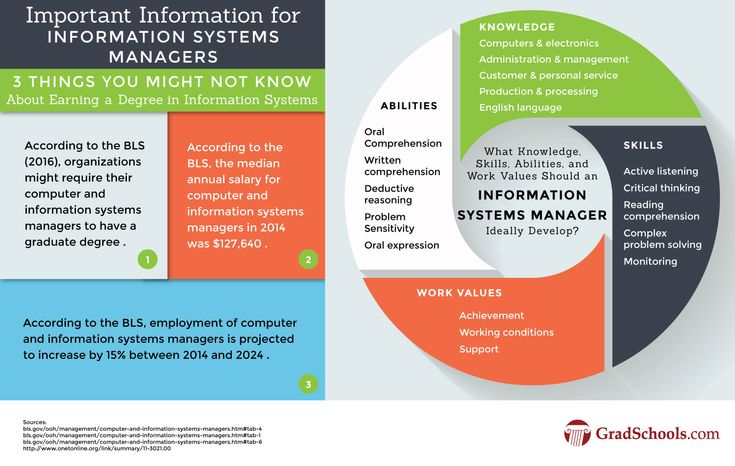 Some companies have applications on their websites under their Career or Job Posting section which you can fill out and submit online. Or you can go directly to the actual job site to ask for an application. If you do this, be sure to look neat and presentable. Wear clothes that are clean and ironed. Be polite and bring a pen and a copy of your resume with you.
Some companies have applications on their websites under their Career or Job Posting section which you can fill out and submit online. Or you can go directly to the actual job site to ask for an application. If you do this, be sure to look neat and presentable. Wear clothes that are clean and ironed. Be polite and bring a pen and a copy of your resume with you. - Practice your interviewing skills in advance. Have a friend or support person help you. Try to make this as realistic as possible. Practice introducing yourself, shaking hands, storytelling, making eye contact, sitting down across a desk from each other, and thanking the interviewer for their time at the end of the interview. Have them ask you practice questions. Remember to focus on your abilities, not your disabilities. Tell them about your strengths, not your weaknesses. Be proud of your accomplishments and share them. Consider taping your interviews so you can listen or watch later and learn from what you did well or where you might need improvement.
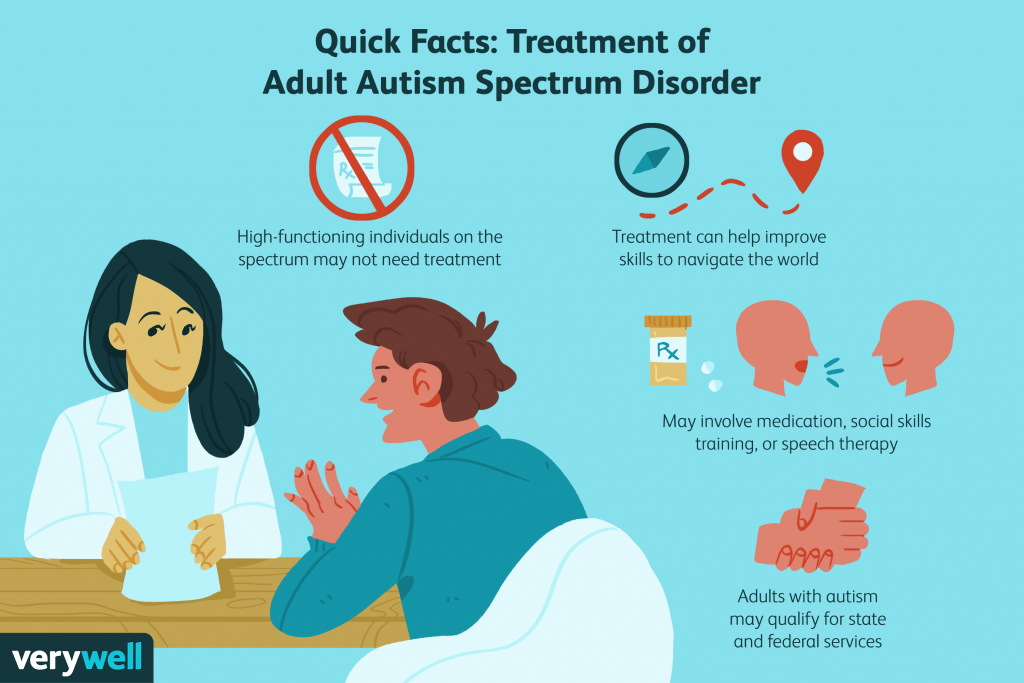
- Write a thank you email or note to your interviewer(s). Each person who interviewed you should either receive an email, or a typed or neatly handwritten note. It should be personalized. You should address the person by the name they used to introduce themselves to you. For instance, you might start the letter with "Dear Jackie," or "Dear Ms. Brancati,". Thank them for speaking to you about the specific position on the date of the interview. Try to mention one thing you liked about the job and/or something you talked about in the job interview. End the thank you with how they can contact you.
- Sign up for our Workplace Inclusion NowTM training course, Navigating Your Differences in the Workplace. This course will teach you how to advocate for yourself at work, including for your sensory needs, social communication differences, executive functioning skills, and safety.
- Download the Autism Speaks Employment Tool Kit where you can find self-assessments to guide you in finding a job and learn about resources available to you, employment benefits and employment rights.

Learn more about navigating your employment journey in our Roadmap to Meaningful Employment for Autistic Adults, written by autistic adults.
Podcast
Adulting on the Spectrum: Dealing with anxiety and navigating autistic spaces
Blog
Catching up with Scarlett: Autistic second grader and her super mom thrive in 2022
Blog
Tips to create inclusive sports and recreation activities
Blog
Career Transitions: How Amy Gravino Turned Her Passion Into Her Profession
Blog
In Our Own Words: Embracing empathy and individuality to overcome bullying
Blog
Expert Q&A: Dr. Ryan Adams shares tips and resources to end bullying
Blog
Chris Tidmarsh is plowing a path to employment for other autistic adults at Green Bridge Growers
News
Autism Speaks announces 2021 Norma and Malcom Baker Recreation Grant Recipients
Autism Speaks does not provide medical or legal advice or services. Rather, Autism Speaks provides general information about autism as a service to the community. The information provided on our website is not a recommendation, referral or endorsement of any resource, therapeutic method, or service provider and does not replace the advice of medical, legal or educational professionals. Autism Speaks has not validated and is not responsible for any information, events, or services provided by third parties. The views and opinions expressed in blogs on our website do not necessarily reflect the views of Autism Speaks.
Rather, Autism Speaks provides general information about autism as a service to the community. The information provided on our website is not a recommendation, referral or endorsement of any resource, therapeutic method, or service provider and does not replace the advice of medical, legal or educational professionals. Autism Speaks has not validated and is not responsible for any information, events, or services provided by third parties. The views and opinions expressed in blogs on our website do not necessarily reflect the views of Autism Speaks.
Job Seekers, Students & Employees
Welcome to Workplace Inclusion Now™ (WIN). This program was designed by an autistic-led team to help you research, find and keep employment in a competitive labor market. Stories, tips and resources were developed from a collaboration of experts, led by autistic adults, based on multidisciplinary research into what makes a workforce thrive and how employees and employers can be set up for success.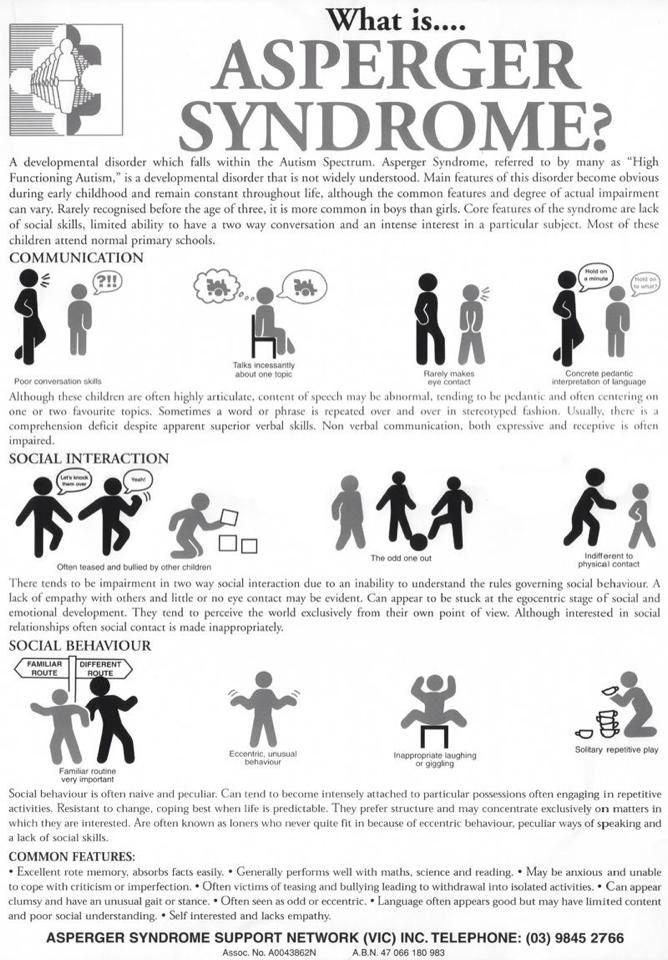
WIN Success Story: Joanna at Lee Container, Centerville, IA
A key component of WIN are online courses designed to help make workplaces more accepting and understanding of our differences and give us tools to navigate our differences at work. These online courses, for the manufacturing, distribution and related industries, are self-paced and highly visual. They were designed with different learning styles in mind. Courses to prepare you for work in other industries are also in development.
Sign up for our
Navigating Your Differences in the Workplace course to get started on your path to employment.
Other free resources available to job seekers include:
- Roadmap to Meaningful Employment
- Employment Toolkit
- LinkedIn: Autism Employment Network
Other tools and resources
Our Employment Tool Kit was designed to help you research, find and keep employment in the competitive labor market. Stories, tips and resources were developed from a collaboration of people, including adults with autism, dedicated to increasing the employment participation of adults on the spectrum.
Stories, tips and resources were developed from a collaboration of people, including adults with autism, dedicated to increasing the employment participation of adults on the spectrum.
Download the kit and begin your job search!
Understanding Social Security Benefits and Employment
For people with autism, a common concern when considering work is the possibility of losing one's benefits. Autism Speaks developed the video below and frequently asked questions to ease your concerns and help you on your search for a job that is right for you.
What is a Vocational Rehabilitation (VR) Agency, and how can it help me?
Each state has a Vocational Rehabilitation (Voc Rehab or VR) agency that provides employment service supports to people with disabilities (including autism). VR is paid for by the federal and state government, and you might be eligible if you apply.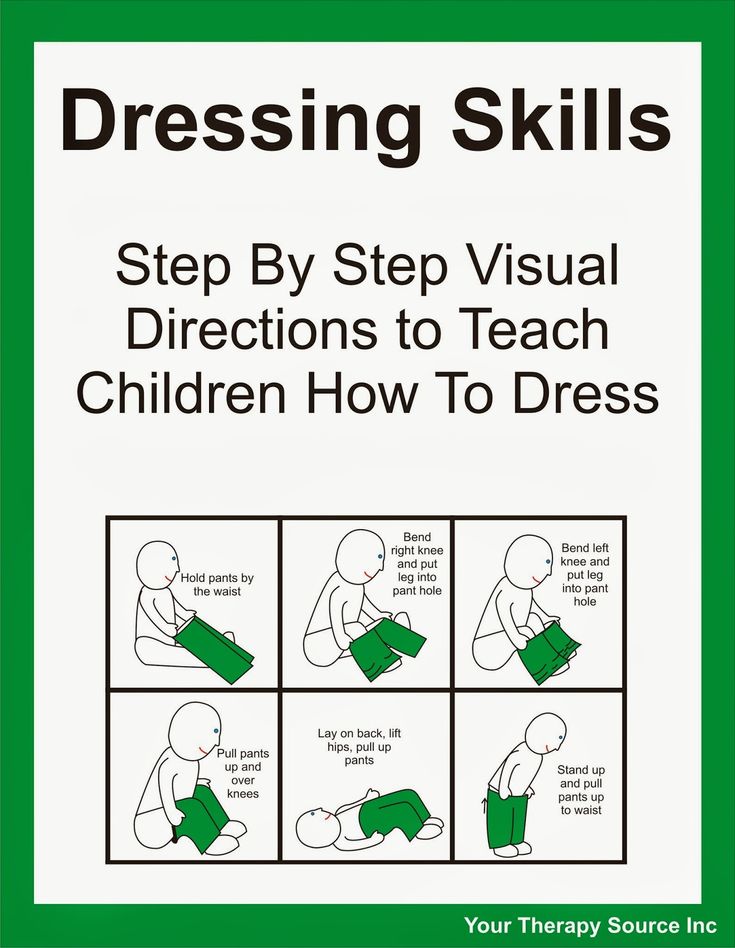 It is available in every state to help people with disabilities prepare for and obtain jobs. In big cities there may be several VR offices, whereas in rural areas there may only be one office that serves many counties.
It is available in every state to help people with disabilities prepare for and obtain jobs. In big cities there may be several VR offices, whereas in rural areas there may only be one office that serves many counties.
Find your state Vocational Rehabilitation (VR) Agency here.
Additional resources for job seekers with autism:
- State Vocational Rehabilitation (VR) Agencies
- American Job Centers (AJCs)
- Job Accommodations Network (JAN)
- U.S. Dept. of Labor: Office of Disability Employment Policy (ODEP)
- Centers for Independent Living (CILs)
- GettingHired.com
- Think Beyond the Label
- Temple Grandin, Ph.D.: Choosing the right job
"They're just different." Why people with autism cannot find work in Russia and who helps them
This text is part of the Such Cases project on the social responsibility of business. We want to tell you that a business can successfully develop, earn money and at the same time solve social problems. This is not an advertising section - we do not receive money from those we write about, and we ourselves choose what we consider important and correct and what is not.
This is not an advertising section - we do not receive money from those we write about, and we ourselves choose what we consider important and correct and what is not.
“I used to work for a company, but only for three months. I worked as a technician for setting up software systems in computers. Everything was fine there, only the dining room was not like that: you had to take food, but I didn’t. He brought with him. Therefore, the money [from the salary] was burned. Such rules. And that's it, and I decided to leave, ”says Igor. nine0005
Igor is 24 years old, but he has only worked for a few months in his life. Not because he doesn’t want, can’t or doesn’t know how - after the ninth grade he graduated from college with a degree in Computer Systems and Complexes, and now he is studying at the Faculty of Public Administration at Moscow University named after S.Yu. Witte.
Igor has autism, a developmental disorder that causes difficulties in social communication. People with autism have difficulty reading emotions and often develop repetitive behavior patterns. Disruption of the usual course of things can provoke serious stress - where a neurotypical [neurotypical person] is devoid of mental features, intellectual and / or mental impairments. — Approx. nine0003 TD ] gets nervous, but will figure it out, a person with autism may not be able to cope, and sometimes even go into severe depression.
People with autism have difficulty reading emotions and often develop repetitive behavior patterns. Disruption of the usual course of things can provoke serious stress - where a neurotypical [neurotypical person] is devoid of mental features, intellectual and / or mental impairments. — Approx. nine0003 TD ] gets nervous, but will figure it out, a person with autism may not be able to cope, and sometimes even go into severe depression.
Igor at work Photo: Such things
Igor, for example, questions any food other than his mother's, and he cannot eat at all in the canteen: for a person with autism, the “wrong” dish is not just tasteless, but absolutely inedible. And the situation in which it must be eaten is hopeless.
People with the same characteristics as Igor often graduate from universities and do not work anywhere, the Russian labor market is simply not ready for them. By law, people with disabilities are entitled to employment assistance and support at work.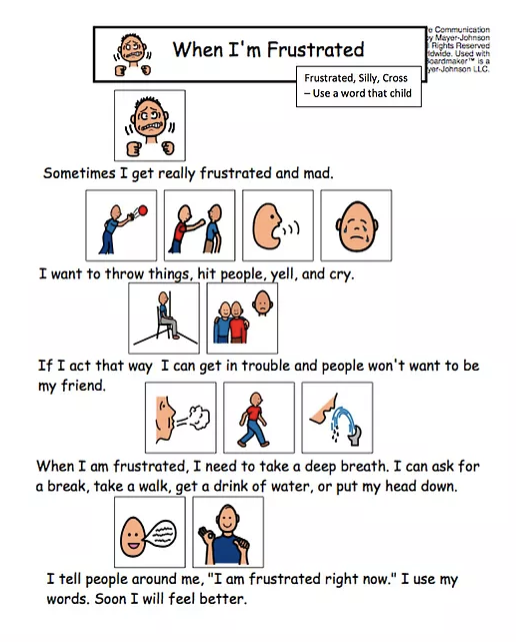 They are assigned a mentor - a person who will "assist in the development of work duties." nine0005
They are assigned a mentor - a person who will "assist in the development of work duties." nine0005
“It's like an open fire”
According to various estimates, there are between 1 and 2.5 million people with ASD [Autism Spectrum Disorder] in Russia. How many of them work is unknown. Some hide their diagnosis, others, after graduating from college or even university, get a job as couriers. This happens not only in Russia. In the USA, for example, in 2017 only 14% percent of people with autism were employed, in the UK - 15%. The reasons were explained by Georgy Gunter, founder of DistingTec, a Russian company that employs people with autism in the IT field. nine0005
See also "It's not just a buzzword, it's really profitable." Why should companies implement the principles of diversity and inclusion?
According to Gunther, 60% of people with autism can work successfully if they are diagnosed early and develop emotional sphere, communication and independence from childhood.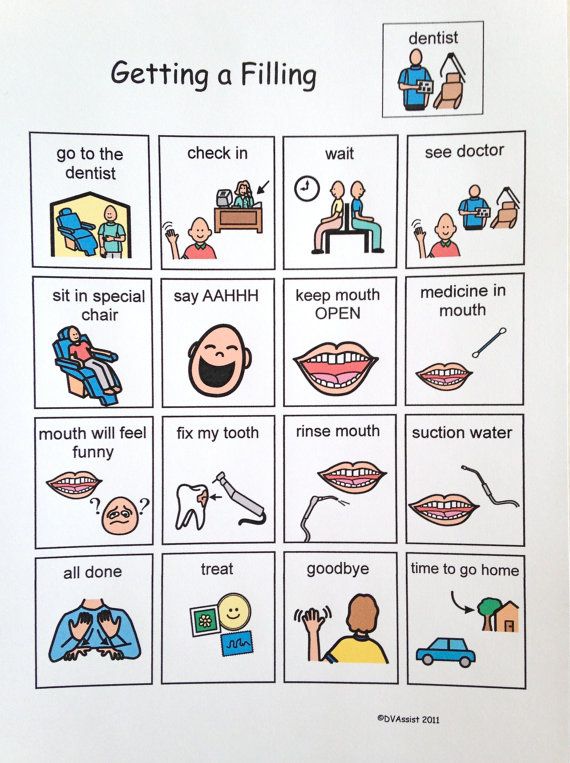 But in Russia, adaptation programs are mainly carried out by specialized charitable foundations, and they are far from being in every city.
But in Russia, adaptation programs are mainly carried out by specialized charitable foundations, and they are far from being in every city.
It is necessary to adapt not only people with autism, but also employers: to teach them to communicate on an equal footing, without ignoring the characteristics of the employee. The phrase “found a scythe on a stone”, for example, can unsettle such an applicant, he will take it literally and lose the thread of the conversation. But this does not mean that you need to forget about jokes, take on a mentoring tone, or, conversely, start fawning - the golden mean comes with practice, but Russian companies do not have it. People with autism sometimes consciously refuse interviews because they are tired of endless awkward and unsuccessful interviews, which often end in stress. nine0005
“Our guys are just different. They are born without skin and perceive everything very sharply, - says Natalya Maryina, Senior Mentor of DistingTec. “Because of this sharpness, many go into themselves, stop perceiving [the world around them], because it hurts.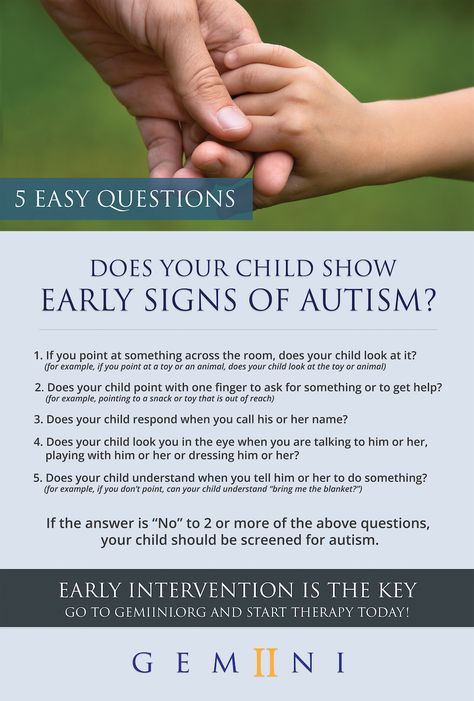 It can be compared to an open fire - you put your hand into the fire, it hurts, and you will not come near the fire again.
It can be compared to an open fire - you put your hand into the fire, it hurts, and you will not come near the fire again.
DistingTec helped Igor get a new job. Now he is an intern at a road safety system supplier. Igor looks at images from photo and video cameras and checks the data of the registrar - the make of the car, the address of the owner. The work is routine, but difficult and important: sometimes, in order to find an address, you need to delve into tax and cartographic databases, but each find corrects the errors of the neural network and adds a new skill to it. nine0005
“I don't get tired of work, nothing irritates me. I love cars, I know them well. Our and foreign cars are one and the same. Ours are more interesting, foreign ones are better. There are no problems with the dining room here at all - you can bring your own food, ”says Igor.
Natalya Maryina Photo: Such things
Natalya Maryina — Igor's mentor, a link between employees with autism and a neurotypical team. She, along with other mentors, creates a "greenhouse environment" - one in which everyone can painlessly adjust to each other. nine0005
She, along with other mentors, creates a "greenhouse environment" - one in which everyone can painlessly adjust to each other. nine0005
“Igor is very often worried, he has increased anxiety. He is afraid to create problems. This is imposed and has grown out of relationships with society,” says Natalya. “But by indirect signs, we understand that the work satisfies him. He is in a positive mood, he communicates well. Even when the shift ends, he is ready to discuss work issues. He is very interested in everything. Our guys are motivated by the search for the right solutions, the opportunity to streamline something is very important for them.” nine0005
People with autism have several strengths that are especially valuable for working in IT: photographic memory and attention to detail, the ability to concentrate well on workflow, clearly follow logic and rules, perform routine, repetitive tasks for a long time, for example, software testing or process data. They cope with routine work better than normotypes: it does not tire and does not burden, but calms.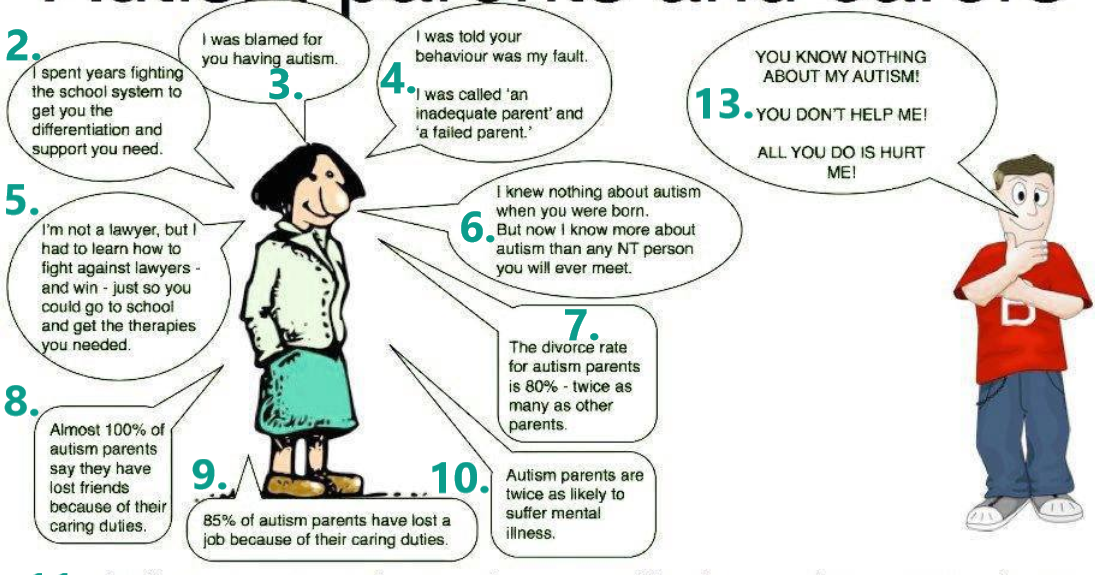
"Another type of perception"
“Guys like to clean up,” confirms Anna Shapiro, HR Director of MVS Group. — We decided to offer them a job that requires attentiveness, perseverance, focus on details. Why did the idea of employing children with autism come about? We work in the field of road safety, and the social mission is very close to us. At some point, we realized that we were ready to do much more for society: to support children with disabilities and offer them to get independence, their own earnings, and a new profession. We assumed that in our field, in terms of working with routine operations, colleagues with autism spectrum characteristics would be most comfortable.” nine0005
MVS Group currently employs 11 people with autism. All of them are in “neurotypical” positions, which were previously filled by employees without special features. Their salary is also normal - no higher and no lower than everyone else.
The company wanted to give people with autism a real profession and the opportunity to work in a team. All MVS employees learned how to communicate with interns, the company was consulted by the Vykhod, Our Sunny World, and Naked Heart foundations.
All MVS employees learned how to communicate with interns, the company was consulted by the Vykhod, Our Sunny World, and Naked Heart foundations.
“Before that, I did not communicate with people with ASD,” says Anna Shapiro, HR Director of MVS Group, “but if you know one person with autism, then it is not at all a fact that you know all the others. Someone is laconic, and you need to make every effort so that the person gets used to you and starts talking. Someone, on the contrary, is very verbose, and you can drown in this stream. It is important to understand that these are adults, you don’t need to lisp with them, and you don’t need to be afraid of them either. They just have a different type of perception. And some things can trigger a fairly serious crisis.” nine0005
Igor's work schedule Photo: Such things
In Anna's experience, a person with autism should not be asked abstract questions like: "What is the most important thing for you at work?" The lack of specifics confuses and unnerves them just as much as the abundance of sensory stimuli, for example, the mixing of artificial and daylight in the office, the sounds of working printers, the smell of cleaning agent that is used to clean the floor in the office every day, unexpected and uninvited touches.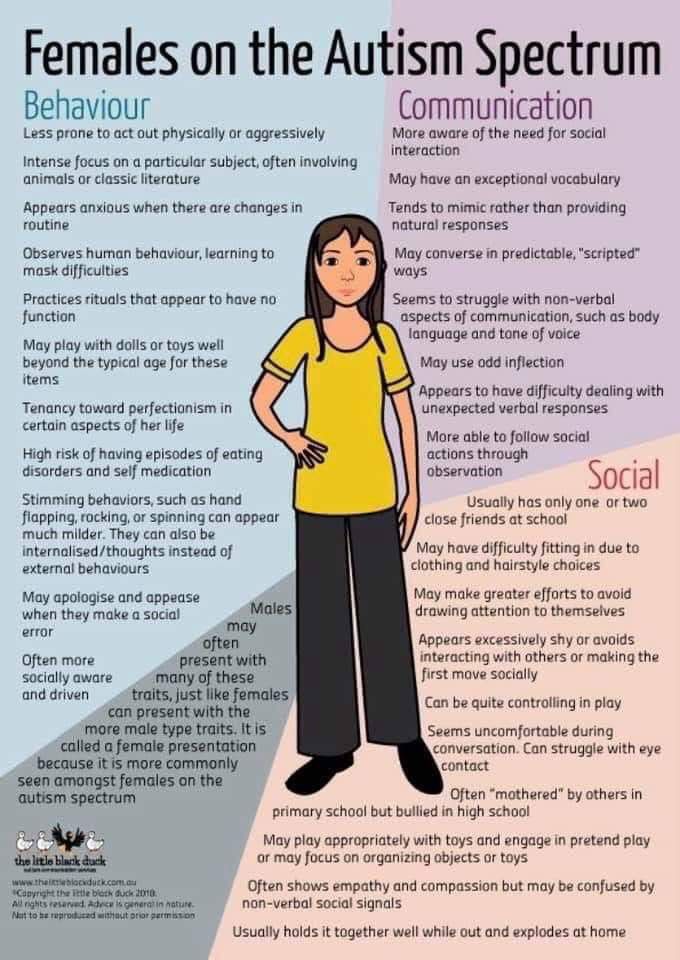 nine0005
nine0005
Anna Shapiro says that “adjustment” to these features did not become a burden for the company: “In an individual approach, there are no special costs, either financial or organizational. Someone wants to work in a separate office, someone in open space. If the company can afford it, it will be an additional comfort factor for the guys. It would be the same if we hired, for example, very creative people to work.”
Adjustment is a mutually beneficial process. Once they get comfortable, people with autism rarely leave their jobs - in 8% of cases against a neurotypical 47%. Adaptation is often what many neurotypicals lack in a new job. For example, a few weeks in a small office instead of an instant immersion in the chaos of an unfamiliar open space. nine0005
"It's just a mental breakdown"
Interns with autism at the MVS Group have a separate office and their own lounge area. Their mentors from DistingTec work there - they explain their work tasks, breaking up new material into small parts (this way it is easier for a person with autism to perceive information), correct mistakes, help them navigate in a new space, and monitor their psychological state. According to senior mentor Natalya Maryina, the guys may not notice the approach of a serious crisis. The neurotypical will say, “I’m tired” and take a break, while the autistic person will start to fuss or, on the contrary, “freeze” and eventually burn out. It's the same with the team - potential conflicts are much easier to extinguish in the bud than to deal with depression or the consequences of a nervous breakdown later. nine0005
Igor also started in a separate office, but rather quickly moved to a common room, he mastered the working algorithm, he follows his own “work / rest” schedule without reminders. He, according to him, is well: “Well, what? Everyone will gradually be here [in the common hall]. Yes, I love working with everyone. I like to communicate, I have good relations with my colleagues”. The mentor does not sit next to Igor in open space, but observes from afar: changing the location and normotypic is not easy, and doubly so for a person with autism. nine0005
Natalia and Igor at work Photo: Such things
Natalya Maryina is sure: without a mentor, a neurotypical team can quickly forget about the characteristics of an employee with autism and stop taking them into account.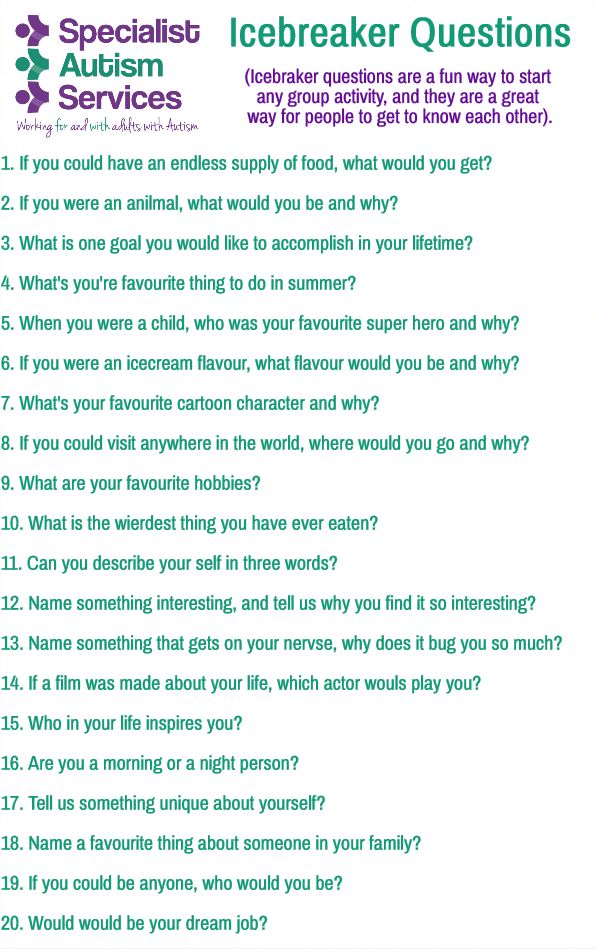 “For a person with autism, this is fraught with the fact that just a psychological breakdown will happen. Some of the guys can go into a stupor and look like a somnambulist. Someone may, on the contrary, get overexcited and start talking very loudly and waving their arms. In neurotypical people, this is not so pronounced, but in our guys it is hypertrophied, ”explains Natalya. nine0005
“For a person with autism, this is fraught with the fact that just a psychological breakdown will happen. Some of the guys can go into a stupor and look like a somnambulist. Someone may, on the contrary, get overexcited and start talking very loudly and waving their arms. In neurotypical people, this is not so pronounced, but in our guys it is hypertrophied, ”explains Natalya. nine0005
DistingTec founder Georgy Gunter says that many people with autism are left without mentors because they hide their diagnosis - a psychotherapist plays the role of an assistant for them. This “best of the worst” is not a complete vacuum, but it is not accompanied by employment. Such a model is only 30% effective, because the psychotherapist does not work "on the spot": he cannot intervene in a conflict with a colleague or remind the boss about the characteristics of the employee.
“A lot of people with autism survive this way now: they go to work, get stressed and somehow manage it with psychotherapists.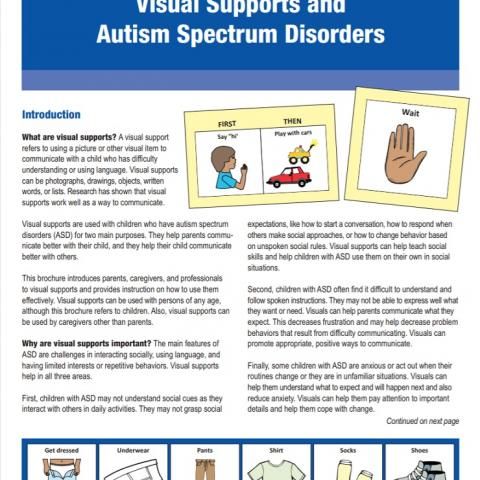 And someone does not go - accumulates stress and drops out of the labor market. In the worst case, it ends up in the PNI, ”explains Gunter. nine0005
And someone does not go - accumulates stress and drops out of the labor market. In the worst case, it ends up in the PNI, ”explains Gunter. nine0005
“How are they employed? No way”
According to the law, only people with disabilities have the right to employment assistance and support at work. But in the MVS Group, for example, only a part of the trainees with autism have it. Now the concept of assisted employment exists only in the form of local manuals in the regions. Such a methodology for IT companies is created by MVS Group, and Georgy Gunter, together with the Ministry of Social Development of the Moscow Region, is working on a large-scale guide on assisted employment of people with autism. nine0005
Natalya Maryina explains this problem as follows: most employers test candidates for "creativity" and "independence" by asking abstract questions. Accepting that a person can not be creative and work well at the same time can be difficult. It turns out a vicious circle, because for people with autism, work is also a rehabilitation, which just helps to overcome communication problems.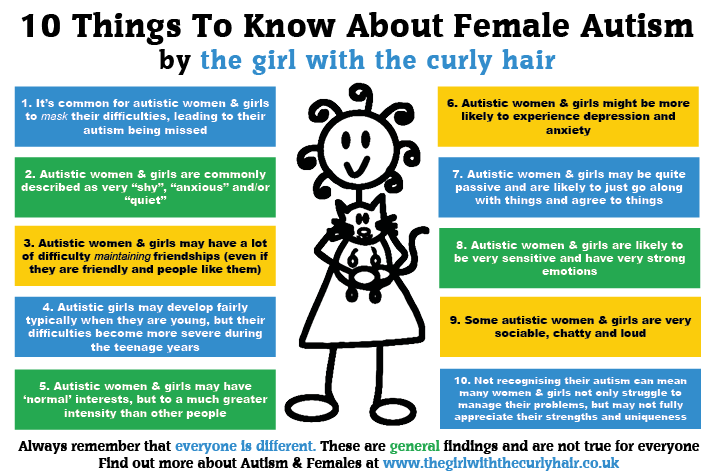
“Friends at work”
“I have friends at work and at university. My friends are in the common room and in my office too. I communicate well with them, I have a common language with them. At work, we only talk about cars, but in our free time, we can talk about other things. My friend Mikhail does not know much about cars yet, I help him figure it out. I like that he is starting to get it. Now he is sick, we correspond with him,” says Igor. nine0005
Igor Photo: Such things
His mother Vera adds: Igor also mostly communicates with his classmates on the Internet. “They study on the weekends. Their communication is not like that of full-time students, who can go somewhere after class, take a walk. The people there are older, most of them already have families, they work. At the dacha, he has friends from the volleyball team, we have a team there in the holiday village. They do not spill water, they have trainings and games there. But it's summer. And Igor loves to communicate. nine0005
But it's summer. And Igor loves to communicate. nine0005
MVS Group plans to hire people with autism for other positions. “This project is a small example of how we are moving towards tolerance and another world without restrictions. Despite the fact that we all have some peculiarities, we all must find our place in this world, work, our sense of social inclusion, necessity, the importance of what we do,” says Anna Shapiro.
Even more important news and good texts from us and our colleagues - in the telegram channel "Takikh Del." Subscribe! nine0005
autism people with mental disabilities social responsibility of business employment
Exit Fund, autism in Russia
05/28/20
AUTISM NEWS gap between external demands and human capabilities
Among autistic adults over the past few years, “autistic burnout” has been a chronic condition that is associated with nervous exhaustion, loss of skills or regression, and worsening sensory problems.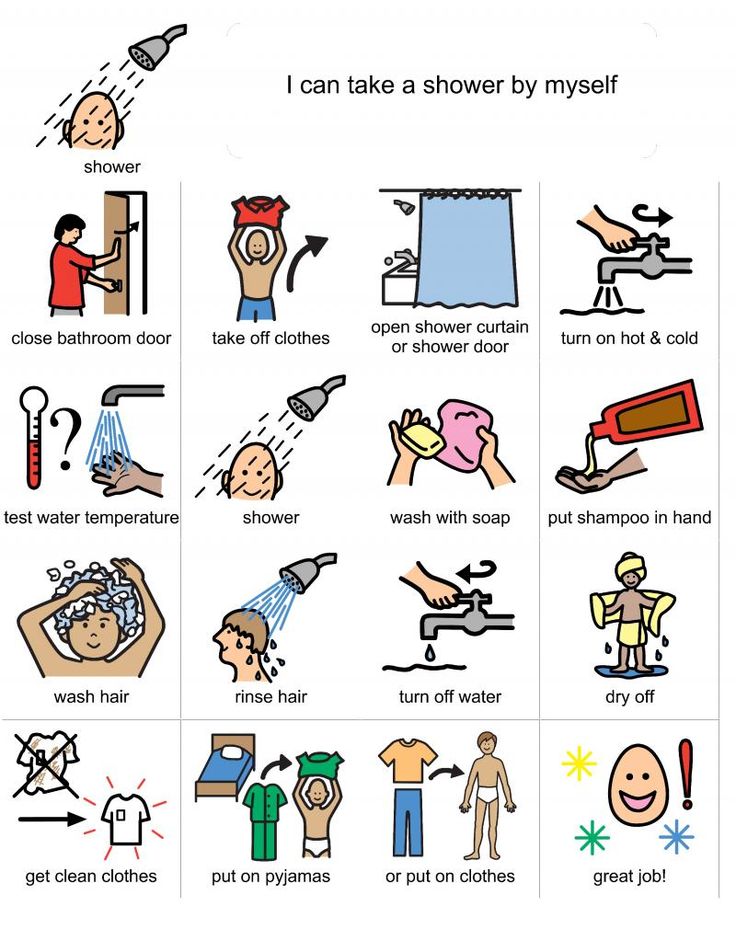 These hardships can be long lasting and have a devastating impact on a person's quality of life. nine0005
These hardships can be long lasting and have a devastating impact on a person's quality of life. nine0005
Further
Autism in adults, scientific research, employment
05/16/20122
Parents, specialists
Description 3 systems for self -organization, which help children and adults in the spectrum of autism more independent of
according to the results of research, " to-do lists (also called “work systems”) increase the amount of time spent on a task, the number of self-completed tasks, and reduce the number of prompts that children and adults with ASD need. nine0005
NEXT
Autism in adults, Methods and treatment, Self-care skills, Employment
Every year in the US, approximately 100,000 children diagnosed with autism reach the age of 18, but only 58% of them will have had paid work experience by the age of 25, according to a 2015 report of the year. For comparison, among people with intellectual disabilities ("mental retardation") without autism, this figure is 74%, and among all high school graduates - almost 9nine%.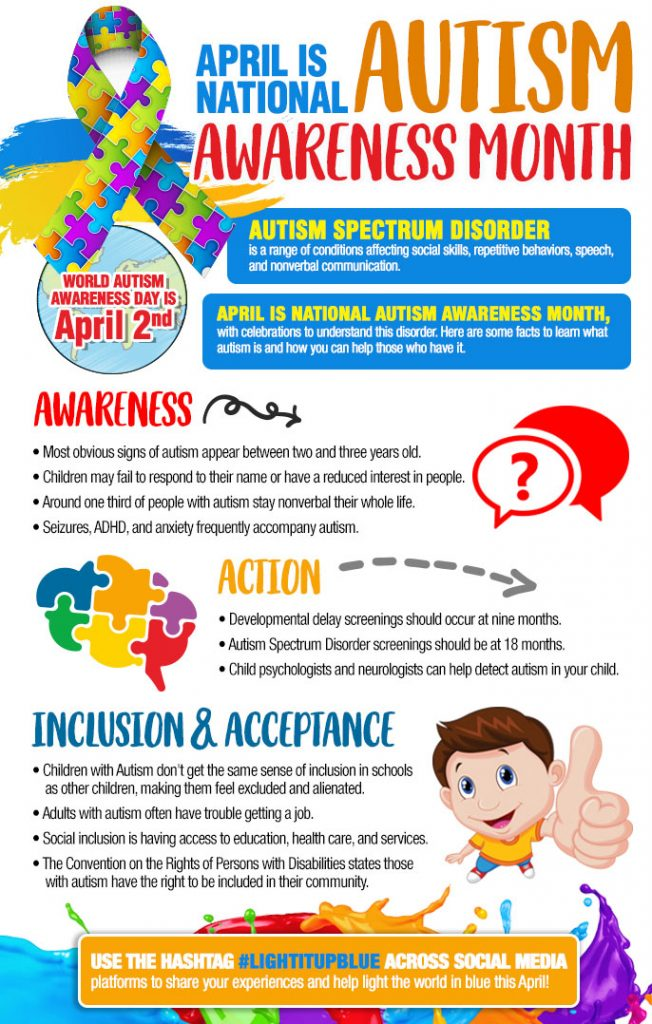
Further
Autisms in adults, scientific research, employment
15.12.19
Autism News
The American Automatic Telephone Orders Created the Position of Intenterios Enterprise Specialism in the Autism spectrum
in the American city in the American city A Colorado Springs company that runs an AI-powered restaurant ordering service has found that people who normally have a hard time finding jobs do better in one of their jobs than everyone else. People on the autism spectrum do a great job as “intention analysts.” nine0005
Further
Success Stories, employment
06/15/19
Autism and society, parents, specialists
Mom of an autistic son on how the search for volunteer work can open doors for employment for people with a races
My son is not one of the "stars" among adults with autism. He normally uses a computer, but does not have any extraordinary skills in this area.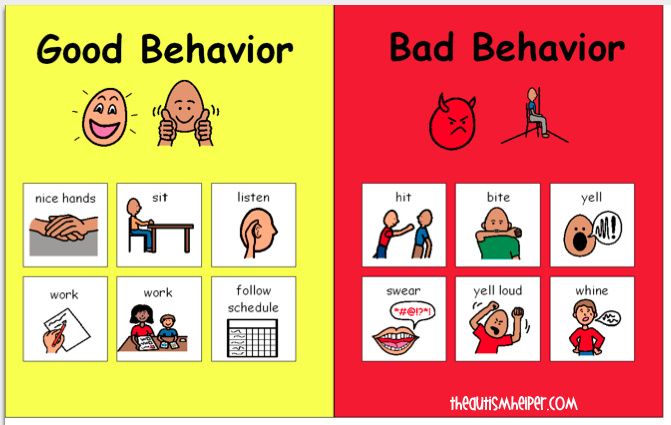 He doesn't have any particular aptitude for science. His mathematical skills are sufficient for everyday life, but not enough to choose a career in technology or commerce. Despite this, he has a successful track record of working in a variety of places - in some cases it was volunteer work, in others it was paid. nine0005
He doesn't have any particular aptitude for science. His mathematical skills are sufficient for everyday life, but not enough to choose a career in technology or commerce. Despite this, he has a successful track record of working in a variety of places - in some cases it was volunteer work, in others it was paid. nine0005
MORE
Autism in adults, Employment
10.05.19
AUTISM AND SOCIETY, PROFESSIONALS
75% of employees of the IT company Ultra Testing are on the spectrum of autism. The company uses remote work tools to help them work effectively together
A company thrives when it plays to its strengths. In 2013, New York-based IT startup Ultra Testing began actively recruiting people on the autism spectrum to work remotely as software testers. Currently, 75% of the company's employees have ASD, while 100% of employees work from home. The company's management believes that autistic employees are prone to pattern recognition, logical reasoning and systems thinking - qualities that are very important in the field of technology.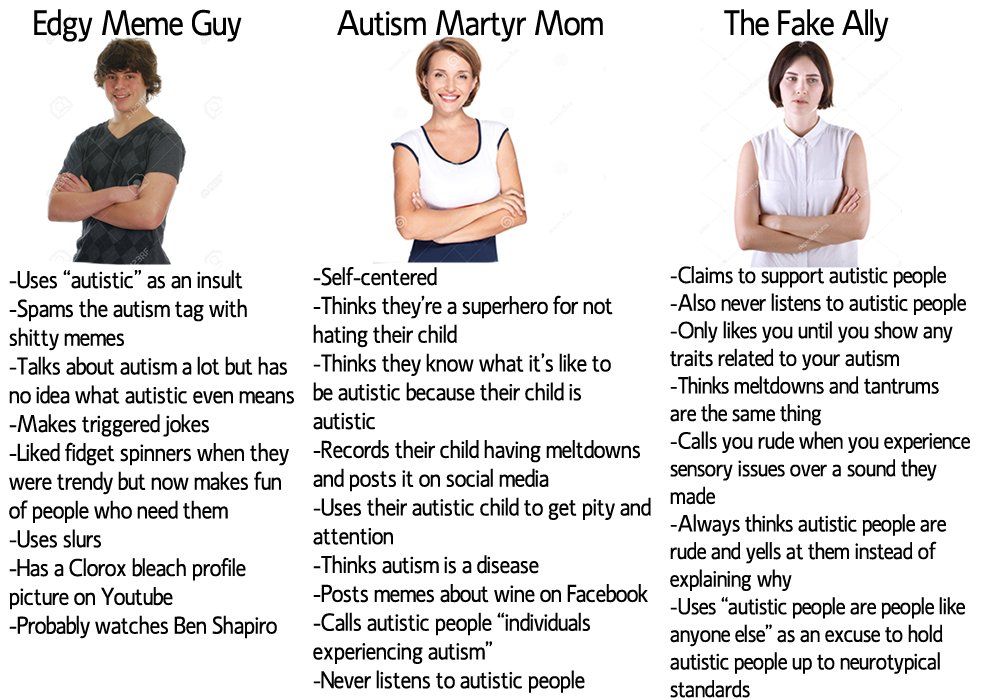 nine0005
nine0005
NEXT
Adult autism, Success stories, Asperger's Syndrome, Employment
The unemployment rate among people with autism is 70-80%. Reading about such statistics, you can’t help but wonder: “Why is this happening?” As a mother of two children with autism, I know firsthand why finding a job can be so difficult. nine0005
NEXT
Education and training, Employment
08/24/18
FOR PARENTS, PROFESSIONALS
Advice for parents of children with disabilities on learning skills related to money
earning your own money are the financial skills that all children need without exception. However, if you are raising a child with autism, Down Syndrome, or another developmental delay or disability, then learning these skills may be more difficult. nine0005
Further
Education of children with autism, self -service skills, employment
07/29/18
Autism and society
Interview with the head of the experimental American project for adults with developmental disabilities and difficult behavioral problems
for 40 for 40 years, the number of people in California living in residential institutions has declined from 13,400 in 1968 to 1,077 in 2015.